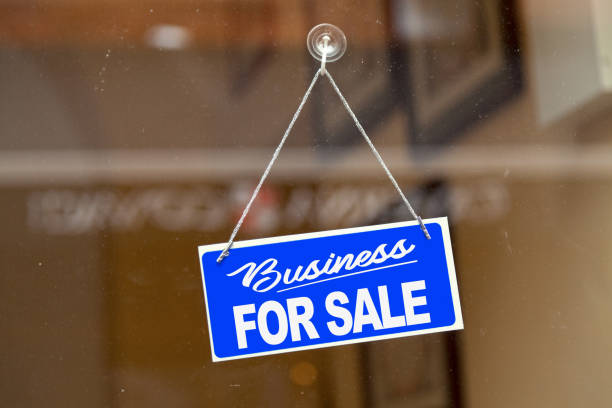
To buy or rent a company has advantages and disadvantages, so it is good to carefully assess which is going to be most beneficial for your company’s needs as well as which would just make your life simpler. Examine your abilities. When it comes to making a selection, the initial cost is undoubtedly important, but it’s not the only one. There are also other factors to take into account, such as usage, availability, and more. Prior to making such a significant financial choice, it is essential to weigh the advantages and disadvantages of renting vs buying. Consider the following points:
Cost Comparison when Choosing to Buy or Rent a Company
Establishing your financial ability to acquire a firm is the first stage in the decision-making process. Your capacity to make a down payment and cover closing fees are a couple of important factors to take into account. These expenditures are probably greater than the initial rental fees and monthly payments that would be necessary if you were renting as opposed to purchasing. Of fact, the initial cost of buying a new business is only a portion of overall expenditures.
Benefits Of Buying a Company
Favorable Financing Alternatives
While startups sometimes look for finance to cover expenditures before they even open their doors to clients, established firms already have a revenue stream that helps them pay their bills. Established companies frequently have a clientele and a good name in the neighborhood. This reassures lenders and may influence them to present loan solutions with better conditions. When compared to startups, established enterprises may obtain more advantageous financing by using inventories and assets as security.

Read: Opening an Office Overseas? Here is Where to Start
A Well-Known Brand
A reputable, long-running company frequently has client brand loyalty. Although you may have suggestions for improving the current brand as the new owner, creating something entirely new won’t require a significant marketing spend. Building a presence in the market from scratch is significantly more difficult than modifying an existing brand with a dedicated consumer base.
Current Clients
One of the benefits of buying an existing company is being able to depend on a steady number of clients right away. The advantages are twofold: a strong clientele and consistent cash flow.
Developed Supply Chain
A seamless company transfer depends on current connections with business partners as well as suppliers. In addition to offering a vital network of business contacts, your supply chain may also aid and provide advice on how to grow or preserve the company. Since they have been employed by a reputable business for some time, they may be aware of the processes or operations that are efficient and those that might use improvement. Comparatively, company owners of startups must invest extra time and effort in finding and developing valuable business partnerships and progressively increasing them.
Should You Rent a Company?
For new businesses that are unable to forecast their earnings for the foreseeable future, renting a company is a smart alternative. It entails that you won’t be stuck with debt on a pricey property investment if things don’t work out.
Business property leases come in two main categories: conventional and flexible. Conventional leases typically cost per square foot and only cover the space. The furnishing and upkeep, as well as expenses like insurance, will be your responsibility. Flexible leases are normally more expensive and shorter in duration, but they typically cover furniture and office upkeep.
Read: How To Avoid 5 Common Start-up Accounting Mistakes
What Benefits Will You Get When Renting a Company?
- Renters have the freedom to break a lease and move if they feel they don’t like their current location or if they need more space.
- Renters benefit from lower upfront expenses. Contrary to a small company owner purchasing a business, renters are not often required to make as much up front, but then don’t forget about the down payment you’ll probably have to pay.
- The owner is responsible for care and maintenance concerns like landscaping and building care, including plumbing, electrical work, and repairs, giving you more time to concentrate on your small company.
Decision-Making Factors to Buy or Rent a Company
If they apply to your case, the following elements may persuade you that buying your company facility is preferable to leasing it:
You desire authority over the property
Perhaps you want to make significant improvements or expansions to the company. Alternatively, you can opt to alter your company hours or another aspect of how you do business. You might need to obtain your owner’s consent to implement these adjustments if you rent your company. However, if you own the company, nobody will be watching your every step to question them (except perhaps the zoning board!).
The price over time is something to worry about
In some cases, a rental could provide better cash flow than a buy, especially in the beginning. But in the long run, buying is often less expensive since an owner will want to make a profit in addition to covering all of the costs of buying and maintaining the property. If you decide to buy the company rather than rent it, you will not have to pay this profit extra.

Location is crucial for various firms, including several retail and service enterprises.
If you have a successful company location, you do not want to lose it because the rent is going up or the owner wants to utilize the room for something else. Owning the facility qualifies you full authority over your company. If your interest is in virtual companies, you would also like the security of your account from a shared one.
You haven’t located a rental company that meets your needs
Sometimes you might wish to rent a firm, but you’ve discovered that all of the ones that would meet your demands are only available for purchase, not for leasing.
You are in a region where company values are rising
It might be preferable to purchase the company than to rent it if you will be located in a region where you anticipate that land prices will continue to increase (and so profit from this gain if you ever sell). This would be especially true if you were able to identify this pattern in real estate prior to its acknowledgment causing prices to spike.
Read: When to Sell or Close Your Business
Which is Preferable, Buying or Renting a Company?
Numerous variables affect whether to rent or buy commercial real estate. These include the quantity of available cash, the anticipated duration of operation, and the nature of the firm. It could be preferable to rent space if the company is just getting started. This is due to the fact that it may take some time for a new firm to establish itself and start making money. Renting furthermore allows the company the freedom to relocate if required. For a company that is already established and intends to remain in one place for a considerable amount of time, purchasing real estate can be a better choice. To choose the strategy that is ideal for your specific circumstance, it is crucial to speak with a financial counselor.
The Easiest Way to Rent a Company
3 Safest Places to Buy a Company Online




